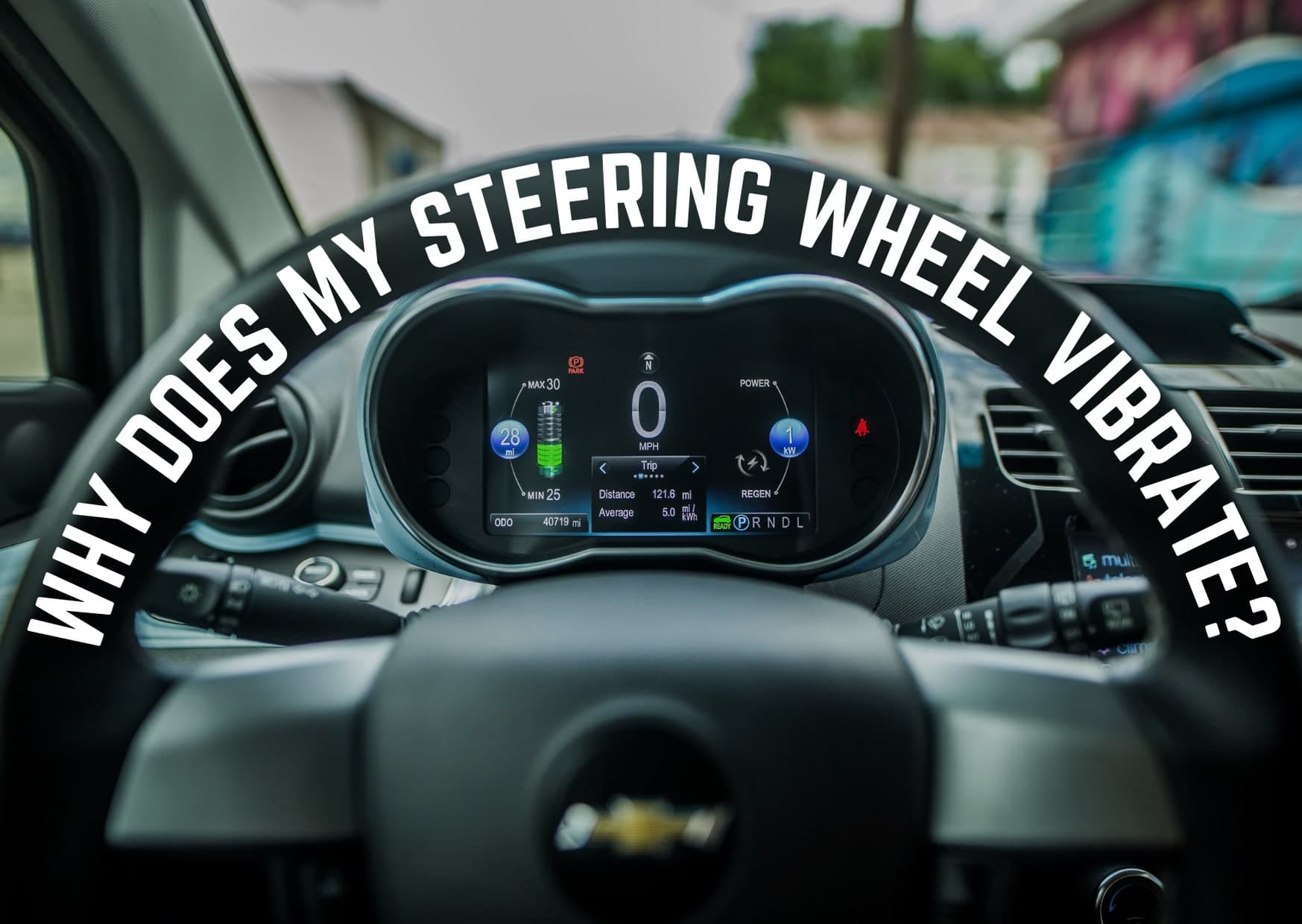Why does my steering wheel vibrate?

Often when there is something wrong with a component in your vehicle, it will be displayed through a subtle sign that you can pick up on. Often these signs are discreet and drivers will dismiss them. Some examples of these subtle signs may be squeaking brakes, a funny smell or a small leak. An excessively vibrating steering wheel is one of these indicators. The steering wheel is the point of contact where you the driver, takes ultimate control of your vehicle, therefore a lot can be said about the condition of your vehicle just by feeling vibrations, shakes and jiggles of the steering wheel. In this article, we are going to explain why does your steering wheel vibrate?
Reasons why my steering wheel is vibrating?
Suspension
If your vehicle has any problems with the suspension, this can be immediately seen through a vibrating steering wheel. This is because the steering and suspension work in tandem with each other, as they are both connected to the wheels. Some common suspension components that can be prone to cause problems are –
- Broken or fractured springs
- Damaged shock absorbers
- Power steering issues
- Broken or missing linkages, bearings and joints.
All of these problems can be identified through a vibrating steering wheel and other signs, such as your car pulling to one side, your vehicle dipping and an unusually bumpy ride.
Brakes
Another component of your car that can display any faults through a vibrating steering wheel are the brakes. When it comes to issues with the brakes there are often 2 culprits.
Worn brake disc
The brake disc is an integral part of the braking system and is responsible for allowing the brake pads to run against it when braking. This causes friction that brings your car to a stop. Over time this constant friction can cause wear and damage to the brake disc. When a brake disc has thinned too much it can cause it to warp, this will cause the pads and other components of the braking system to catch on the disc causing vibrations felt through the steering wheel.
Related: When do brake discs need changing?
Worn brake pads
Worn brake pads are essentially the same as worn brake discs. The pads are responsible for rubbing against the disc and generating the friction that brings your vehicle to a stop. The brake pads are made from a material that over time will reduce in thickness. Once the brake pads get too thin they will begin to catch on the brake disc causing the steering wheel to vibrate.
Some other signs that brake pads or disc have been worn down too much may be grinding noises coming from brakes and brake performance reduced. If you noticed that your pads or disc need replacing you should make this your priority to keep yourself and other drivers safe.
Related: 4 signs your brake pads need changing
Tyres
Tyres are the most probable reason why your steering wheel is vibrating. Some issues with the tyres that cause this include –
Unbalanced wheels
When a new tyre is installed weights are added to the wheel to ensure that weight is distributed evenly around the wheel. As tread ware increases throughout the lifetime of a tyre, the distribution of weight around the tyre begins to change. This will cause the wheels to be unbalanced causing the car to shake. This will be most noticeable when travelling at higher speeds. As the vehicle shakes this will be most felt through the steering wheel.
Related: Wheel balancing
Wheel misalignment
Wheel misalignment can occur through general wear over time or by sudden impact with a curb for example. Once the wheel has been misaligned this can cause excessive shaking and loss of control with your vehicle. This can be identified through a vibrating steering wheel and through uneven tread wear on the tyre.
Related: Tyre types – what are the differences
What should I do if my steering wheel is vibrating?
If you notice your steering wheel vibrating, no matter whether it is related to your tyres, suspension or brakes it is important that this issue is corrected as soon as possible. This is not just to ensure that your vehicle is working to optimal levels, but also to make sure that you and other drivers are safe when driving.
If you feel like there is an underlying issue with your vehicle identified through a shaking steering wheel, book in for a service with National and allow a professional to identify and resolve the issue.
Related: Car service & MOT
Will a vibrating steering wheel cause a failed MOT?
Your steering wheel vibrating is not something that will physically cause you to fail an MOT. However, the underlying issues that cause the steering wheel to vibrate will cause you to fail. An example of this would be worn down brake pads. They will cause the steering wheel to vibrate which is not a fail but will affect brake performance, causing your car to fail the brake test.
Related: Common MOT failures and how to prevent them
How can I fix my steering wheel vibrating?
As previously stated there are multiple reasons why your steering wheel may be vibrating. In order to get this issue fixed, book into one of our 250 nationwide garages and get this resolved by a professional.
Related: Find your nearest branch
Did you enjoy this blog post? |1 people found this review helpful



 Sign up for SPECIAL OFFERS
Sign up for SPECIAL OFFERS
